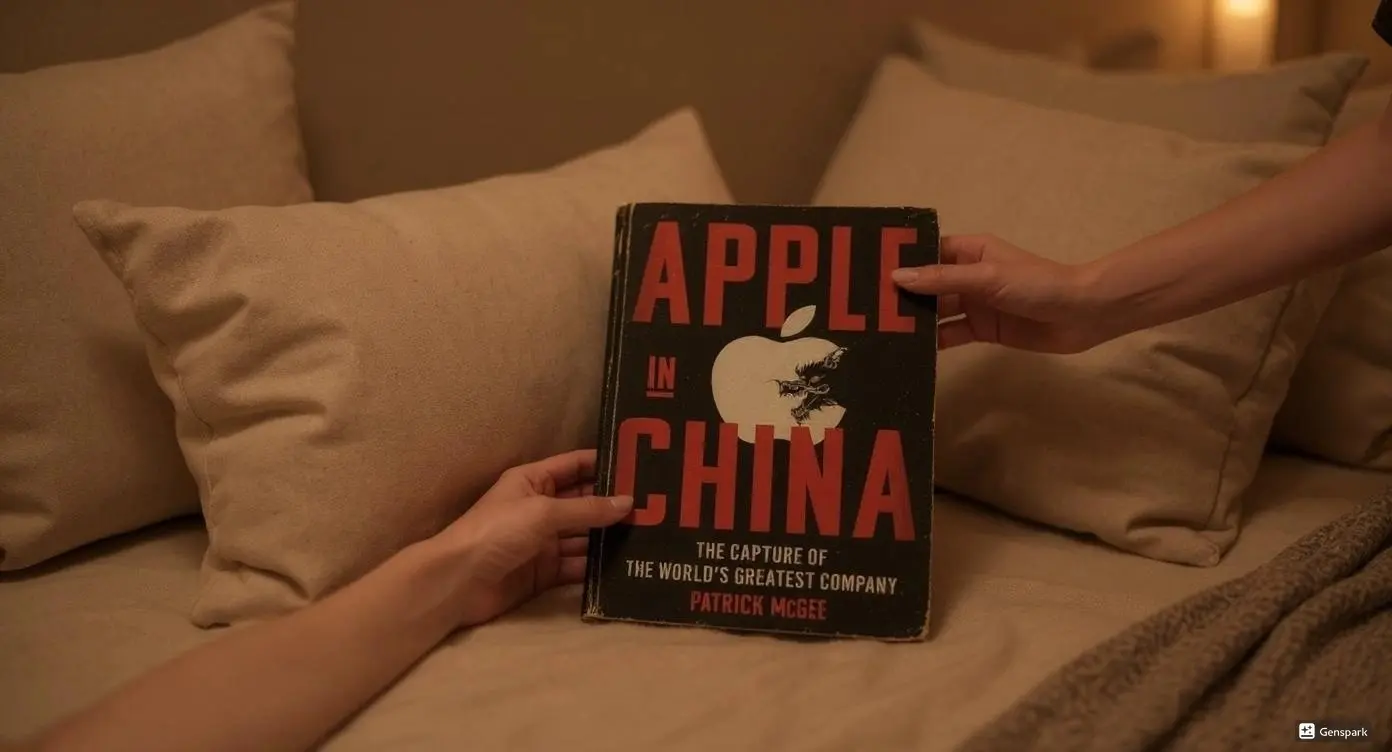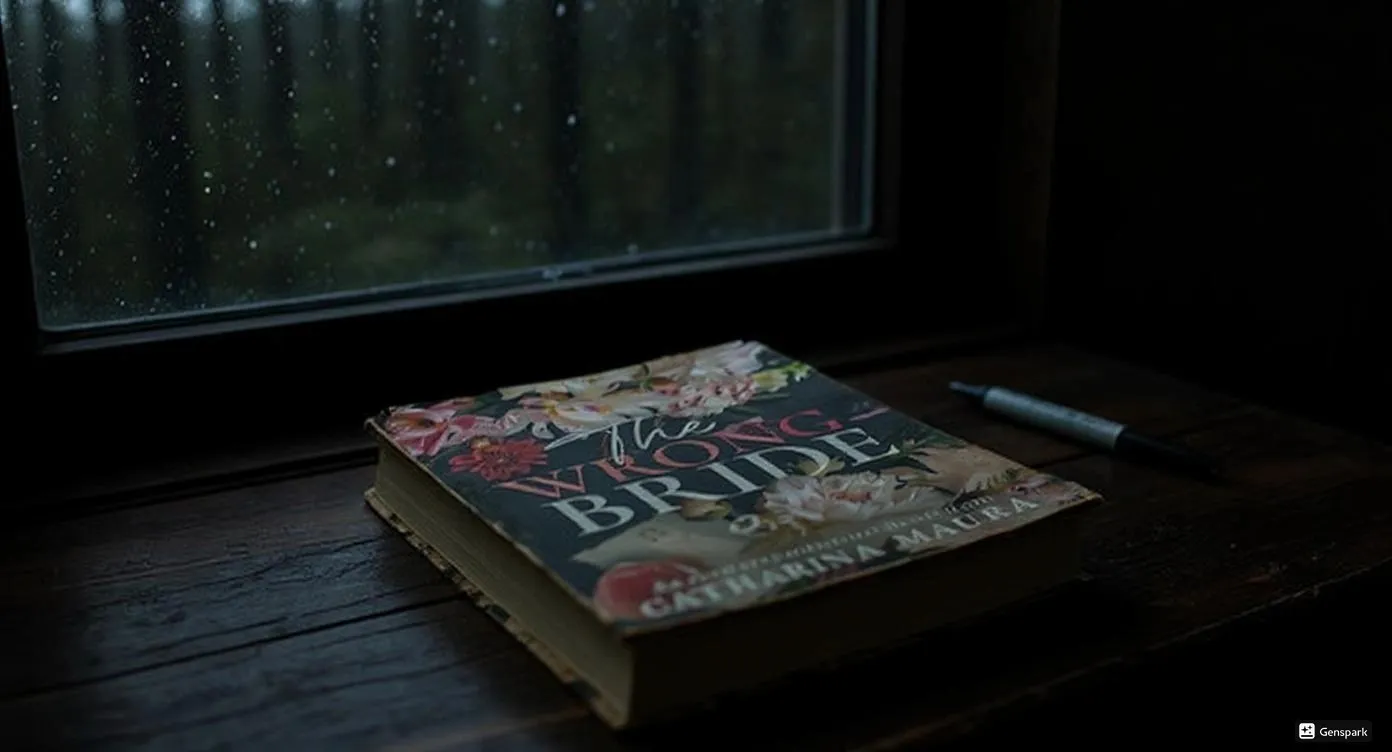Last updated on June 29th, 2025 at 07:20 am
I’ll be honest—King of Ashes by S.A. Cosby is a rare book. It mixes tough moments with strong feelings. I could not stop reading it. Cosby is a big name in crime fiction.
The excitement for this book felt real. I read late at night. My heart was beating fast. Cosby’s scary storytelling pulled me in. Every page had lots of tension.
Key Takeaways
King of Ashes is an exciting Southern noir crime book. It has strong feelings and moves quickly. This keeps readers interested.
The main character, Roman, feels real and complicated. His problems and choices are easy to understand.
The Southern setting is described well. It helps create the story’s mood and tension.
The book talks about family loyalty, revenge, right and wrong, violence, and extremism. These ideas are shown in a thoughtful way and make the story deeper.
Cosby writes clearly and uses short sentences. He uses active voice, so the book is easy to read.
The action scenes are strong and move at a good speed. Sometimes, the fast pace does not leave much time for quiet moments.
The other characters are interesting and well described. They make the story more detailed and enjoyable.
This book is good for people who like emotional crime stories. It is for those who want stories about characters, with a dark and serious mood, and a Southern feel.
Worth Reading?
This book tells a scary and exciting story. It mixes strong feelings with the tough world of Southern noir. I cared a lot about the characters, even when they made shocking choices.
Still, not every book that keeps me up is one I would tell others to read. So, is King of Ashes worth your time? I think Cosby did a great job making a story that feels smart and exciting. The feelings in the book are deep. The writing is clear, and the story moves fast. I would give it a 7 out of 10. It is not perfect, but it is special in its genre.
Who Will Enjoy It
Let’s talk about who should read this book. I always try to picture the best reader. Maybe you like stories about family, revenge, and hard choices. Maybe you want books that talk about tough things but still give hope. If you like crime fiction with strong characters and a Southern feel, this book is for you.
Here is a list of people who will like King of Ashes by S.A. Cosby:
Fans of gritty, emotional crime novels
Readers who enjoy Southern noir and atmospheric settings
Anyone who likes flawed, complex characters
People who want a book that makes them think about morality and family
Those who appreciate a blend of literary style and suspense
Studies show that adults who like dark, deep stories are the main audience. But it is not just about age or where you are from. What you like, what you believe, and your life experiences matter too. If you have ever felt stuck between loyalty and justice, or if you like stories that make you think, you will probably like this book.
Tip: If you are not sure if this book is for you, read the first chapter somewhere quiet. If your heart beats faster, you have found your next favorite book.
Plot

Protagonist
I have to admit, I’m a sucker for a main character who feels real—messy, flawed, and full of contradictions. In King of Ashes, Cosby gives us Roman, a protagonist who jumps off the page. I found myself rooting for him, even when he made choices that left me shaking my head. Roman’s voice feels honest and raw. He’s not a superhero. He’s a man trying to do right by his family, even when the world keeps throwing curveballs.
Roman’s story unfolds in the first person, which pulls me right into his head. I could almost hear his thoughts echoing in my own.
Cosby paints Roman with verbs and adjectives that show both strength and vulnerability. One minute, Roman stands tall and determined. The next, he’s weighed down by guilt or fear.
Roman’s character swings between good and bad, active and passive, strong and weak. This mix makes him unpredictable and, honestly, more believable than most crime fiction leads.
I noticed that Cosby’s portrayal of Roman feels more varied and human than the flat, predictable heroes I’ve seen in some other books. The emotional highs and lows kept me guessing what Roman would do next.
Setting
The setting in King of Ashes is more than just a backdrop. It’s a living, breathing part of the story. I could almost smell the rain-soaked earth and feel the sticky Southern air on my skin. Cosby’s attention to detail made the world feel real, not just painted in broad strokes.
The story takes place in the American South, with its unique blend of heat, humidity, and history. I pictured small towns, winding roads, and thick forests.
Cosby uses real-world details—latitude, climate, and even the way the light hits the trees—to ground the story. The setting shapes how the characters act and feel.
Seasonal changes and weather patterns play a big role. Storms roll in, bringing tension and change. The environment feels like another character, always present.
Sensory details pop up everywhere. I caught the scent of pine, the sound of distant thunder, and the taste of dust in the air. These touches made the setting immersive.
Reading late at night, I felt like I was right there with Roman, walking those lonely roads.
Conflict
The heart of King of Ashes beats with conflict. Every chapter raises the stakes. Roman faces choices that could break him or save him. The tension never lets up. I found myself holding my breath, waiting to see what would happen next.
Stakes matter in any story. If the hero fails, what’s lost? Cosby makes sure we know. Roman’s struggle isn’t just about him. It’s about family, loyalty, and the cost of doing what’s right. Without clear stakes, stories fall flat. Here, the consequences feel real. I cared about the outcome because Cosby built the tension naturally. Each event leads to another, raising the stakes without feeling forced. The conflict kept me turning pages, desperate to see how Roman would handle the next twist.
I’ll be honest—this book left me gasping more than once. The conflict isn’t just plot. It’s personal, emotional, and unforgettable.
Characters

Roman
Motivations
Roman Carruthers stands out as one of those main characters who sticks with me long after I close the book. I saw right away that he isn’t just a guy caught in a bad situation—he’s a man pulled in every direction by his past, his family, and his own sense of right and wrong. When I first met Roman, he seemed like someone who had it all together. He left his rough hometown behind and built a life as a successful investment manager. But then, family trouble drags him back, and everything changes.
Cosby does a great job showing Roman’s transformation. At first, Roman wants to keep his distance. He tries to stay out of the mess. But as the story goes on, I watched him get pulled deeper into family drama and dangerous choices. He starts to care more about protecting his loved ones than about his own comfort or safety.
This shift—from a man who runs away to a man who stands his ground—makes Roman’s journey feel real and important. The book spends a lot of time inside his head, showing his doubts, fears, and hopes. I could feel the weight of every decision he made.
Vulnerability
What really got me about Roman was his vulnerability. He isn’t some action hero who always knows what to do. He messes up. He gets scared. Sometimes, he even wants to give up. I found myself rooting for him because he felt so human. Cosby lets us see Roman’s softer side, especially when he’s with his family. He tries to be strong, but the pressure gets to him. I saw him struggle with guilt and regret, and that made his victories feel earned.
Roman’s inner battles matter just as much as the fights happening around him. I have to give props to Cosby for making me care about Roman’s pain and hope. His journey from a detached outsider to someone willing to risk everything for his family left me thinking about my own choices. That’s the mark of a strong main character.
Supporting Cast
Relationships
The supporting cast in King of Ashes brings the story to life. I noticed right away how much these characters shape Roman’s world. Each one has a unique bond with him—some push him to be better, others pull him back into old habits. Their relationships add layers to the story and keep things interesting.
Fan communities often talk about how supporting characters can make or break a story. I see that here. The way Roman interacts with his family, friends, and even enemies gives the book its heart.
The dialogue between Roman and the people around him feels real. Sometimes it’s tense, sometimes it’s funny, but it always moves the story forward.
I love how Cosby uses these relationships to show different sides of Roman. With his family, he’s protective. With old friends, he’s nostalgic but wary. With rivals, he’s sharp and guarded.
Development
I’ve read a lot of crime novels where the side characters feel flat, but that’s not the case here. Cosby gives each supporting character their own goals and struggles. They aren’t just there to help or hurt Roman—they have their own stories.
Well-developed supporting characters can be just as interesting as the main character. I saw that in King of Ashes. Some of my favorite moments came from unexpected side plots or small character arcs.
The relationships between these characters drive the plot and help Roman grow. Sometimes, a conversation or a small act changes everything.
I noticed that fan studies show how much readers care about supporting casts. When these characters feel real, readers get more invested in the story. That’s true for me, too—I found myself wanting to know what would happen to everyone, not just Roman.
To be fair, not every side character gets the same attention, but the ones who do really shine. Their presence makes the world feel bigger and the stakes feel higher. I couldn’t put it down because I wanted to see how all these lives would collide.
Themes
Family Loyalty
I have a soft spot for stories that dig deep into family loyalty. King of Ashes hooked me right away because it reminded me how powerful those bonds can be. Roman’s choices always circle back to his family. Sometimes, he wants to run. Other times, he stands his ground, even when it hurts. I saw echoes of old legends in these pages.
The samurai’s Bushido code from 16th-century Japan comes to mind. That code made loyalty and honor the heart of a person’s life. It wasn’t just about fighting—it was about protecting your family’s name and future. I’ve read Greek classics like the Iliad and Antigone, where family loyalty leads to both triumph and tragedy.
Cosby’s novel fits right into that tradition. The story feels like a modern saga, with family ties pulling characters in every direction. I noticed how the plot weaves together old wounds and new promises, just like the historical sagas that follow families across generations. Every decision Roman makes ripples through his family, for better or worse. That’s what makes the stakes feel so real.
Morality
Morality in King of Ashes is messy. I love that. Roman faces choices that don’t have easy answers. Sometimes, doing the right thing means hurting someone you care about. Other times, it means breaking the rules to protect your own. I caught myself wondering what I would do in his place. Would I make the same sacrifices?
Would I cross the same lines? Cosby doesn’t hand out simple lessons. Instead, he shows how good people can make bad choices—and how those choices stick with them. I finished the book still thinking about what it means to be a good person when the world feels broken. If you like stories that make you question your own beliefs, this one will stick with you.
Revenge
Revenge in King of Ashes hit me right in the gut. I know I’m not supposed to root for payback, but Cosby made it feel so real. Roman’s journey isn’t just about justice. It’s about that burning need to set things right when the world feels unfair. I’ve read a lot of books where revenge is just a plot device. Here, it’s personal. It’s messy. It’s the kind of thing that keeps you up at night, replaying old arguments in your head.
I noticed how Cosby shows revenge as a reaction to betrayal and loss. Roman doesn’t wake up wanting to hurt anyone. He gets pushed, little by little, until he can’t take it anymore. That slow build made my heart race. I could almost feel the anger simmering under his skin. Sometimes, I wanted to shout at him to walk away. Other times, I understood why he couldn’t.
What really struck me is how revenge changes people. It doesn’t just hurt the target. It eats away at the person seeking it. I saw Roman struggle with guilt and regret after every choice. The emotional fallout felt heavy. I’ve seen studies that back this up.
Researchers interviewed people from all over the world—93 participants across 22 countries. They found that when people face exclusion or betrayal, their stories often shift from hope to revenge. It’s a pattern that crosses borders and backgrounds. Cosby taps into that universal feeling. He shows how revenge can start as a way to fight back but ends up leaving scars on everyone involved.
Extremism
Extremism creeps into King of Ashes like a shadow you can’t shake. I saw how small ideas, left unchecked, can grow into something dangerous. Cosby doesn’t preach. He just shows how easy it is for people to get pulled in by anger, fear, or a sense of belonging. I’ve read news stories about this, but seeing it play out in a novel made it feel more real.
Here are some facts that stuck with me:
Between 40% and 50% of young people run into hate speech online.
61% of UK-based terrorist actors had some kind of online activity tied to terrorism.
Of those, 54% used the internet to learn, 44% to spread extremist media, and 32% to plan attacks.
Lone actors are 2.64 times more likely than groups to use online learning for extremist purposes.
These numbers show how fast and far extremist ideas can spread, especially online. Cosby’s story made me think about how easy it is to fall into these traps. Sometimes, all it takes is one bad day or one angry voice to push someone over the edge.
I also learned that in places like Indonesia and Brazil, political corruption can drive people toward extreme views. When people feel powerless, they look for leaders who promise big changes, even if those changes come from the wrong places. Cosby captures that feeling of desperation. He shows how good people can get swept up in dangerous movements when they feel ignored or betrayed.
Style
Writing
I have to admit, Cosby’s writing style hooked me from the first page. I found myself reading with a flashlight under the covers, just like when I was a kid sneaking one more chapter before bed. The sentences move fast. The words feel sharp and clear. I never had to stop and reread a paragraph just to figure out what was happening. That’s rare in crime fiction.
Cosby keeps his sentences short and his word choices simple. I checked a few passages with a readability tool. The Flesch score landed right in the sweet spot for a 7th-grade reader—between 70 and 80. That means most readers, even those who don’t read a lot, can jump right in.
I noticed Cosby uses active voice almost everywhere. The story feels alive because of it. Each paragraph has a rhythm that pulls me along.
The paragraphs never drag. I never felt lost in a sea of words. The pacing matches the tension of the plot.
I’ve learned that stylometry—basically, the science of studying writing style—looks at things like sentence length, word choice, and patterns. Cosby’s style stands out because he balances clarity with emotion. He doesn’t try to sound fancy. He just tells the story in a way that feels honest. That’s not easy to pull off.
Symbolism
Cosby doesn’t hit you over the head with symbols, but they’re there if you look. I started noticing little things—a broken watch, the way the rain always seems to fall during the hardest moments, the ash that lingers after every fire. These details add layers to the story. They made me stop and think about what Roman was really fighting for.
The ash in the title shows up again and again. It made me think about what’s left after everything burns down—memories, regrets, maybe even hope.
The storms that roll through the story feel like more than just weather. They match Roman’s mood. When he’s angry or scared, the sky seems to darken too.
Even small objects, like a family photo or an old car, carry meaning. They remind Roman (and me) of what he’s lost and what he still wants to protect.
I love when a book makes me look for hidden meanings. Cosby does it with a light touch. I never felt like I was being lectured.
Dialogue
The dialogue in King of Ashes feels real. I could almost hear the characters talking in my living room. Sometimes, I even caught myself mouthing the words out loud. Cosby’s characters don’t just talk—they argue, joke, and confess. The conversations move the story forward and reveal what’s really going on inside each person.
I’ve read studies that say good dialogue uses authentic questions and invites real answers. Cosby nails this. The characters ask tough questions and don’t always get easy answers.
The back-and-forth feels natural. There’s a rhythm to it, like a real conversation. Sometimes, a single line made me laugh or stop and think.
Researchers found that when dialogue invites reasoning and builds consensus, it sticks with readers. I saw that here. The best scenes in the book are the ones where characters challenge each other and grow.
To be fair, not every line is perfect. Sometimes, I wished for a little more subtext. But overall, the dialogue kept me hooked.
Pacing and Tone
Action
I’ll be honest—when I pick up a crime novel, I want action that keeps my heart racing. King of Ashes delivers on that front. The action scenes come in quick bursts, like a series of fireworks instead of one long explosion. I noticed Cosby structures these moments almost like scenes in a movie. Each sequence feels tight, with short, punchy chapters that bounce between tense confrontations and quieter moments. I found myself flipping pages faster during these parts, barely pausing to breathe.
What really stood out to me is how Cosby uses these action sequences to speed up the story. The narrative jumps between different threads—sometimes a chase, sometimes a standoff—never letting me get too comfortable. I read somewhere that in movies, action scenes work best when they’re made up of short, fast subscenes.
That’s exactly what I saw here. The book’s pacing ramps up during these moments, making it hard to put down. I even caught myself reading faster, almost like my brain wanted to keep up with the story’s rhythm. When the action hit, I felt like I was right there with Roman, ducking for cover or running through the rain.
Atmosphere
Cosby’s writing oozes atmosphere. I could almost smell the wet earth and hear the distant thunder. The tone stays dark and brooding, but never slips into melodrama. Every word feels chosen to set the mood—sometimes sharp and cold, sometimes heavy and slow. I noticed the way Cosby uses short sentences during tense scenes, then stretches them out when things calm down. That rhythm pulls me in and keeps me on edge.
Mood and tone work together here. The setting, the weather, even the way characters talk—all of it builds a world that feels real and a little bit dangerous. I’ve read studies that say word choice and imagery shape how we feel about a story. That checks out for me. The book’s atmosphere made me want to keep the lights on, just in case.
Tip: If you want to get lost in a book’s mood, read this one on a stormy night. Trust me, it’s an experience.
Flaws
Sometimes, the story moves so fast that I lost track of who was where or why a scene mattered. There were moments when I wished for a breather—a chance to sit with the characters before the next crisis hit. In my experience, pacing can make or break a book. If it’s too slow, I get bored. If it’s too fast, I feel lost.
I’ve seen editors say that pacing is what keeps readers turning pages, but it can also make a book feel “too chewy” if not handled right. Here, the action sometimes overshadows quieter moments, making the emotional beats feel rushed. The tone, while strong, can get a bit heavy-handed. I wanted more variety—maybe a little more light to balance the dark.
To be fair, these flaws didn’t ruin the book for me. They just kept it from being a perfect read. After reading over 3,000 books, I can confidently say that even the best stories have their rough edges. King of Ashes moves fast and hits hard, but sometimes I wished it would slow down and let me catch my breath.
Comparison
Cosby’s Other Works
I get a bit nervous when I read a new book by an author I already like. I have read Cosby’s other books, like Blacktop Wasteland and Razorblade Tears. I expected this book to be exciting. Cosby’s usual style is gritty and full of strong feelings. He uses tough choices in his stories. In King of Ashes, the emotions feel even stronger. Roman seems more open and hurt than Cosby’s old main characters.
The family problems feel bigger. The violence is not just for show. It feels more real and close. Cosby’s writing is sharper now. The talking between characters is quick. The story moves fast and does not slow down much. I did miss some of the wild energy from his older books.
If you liked the mix of action and heart before, you will like this book too. But it is not exactly the same. Cosby tries new things here. Some work well, but not all of them do.
Literary Elements
I always look for small details that make a book special. I notice style, how the story is built, and big surprises in the plot. King of Ashes does most of these things well. The writing is clear and sharp. The story keeps moving. The ideas in the book are deep. People who study books use many tools to see what makes a book “literary.” Here are some that I found interesting:
Distance metrics like Euclidean distance compare book features.
Topic modeling finds themes in the text.
Clustering algorithms spot books that are alike.
Big datasets test if these tools work on many books.
A big survey in the Netherlands showed what readers think makes a book literary. They said style, structure, plot, and story layers matter most. Genre books, like suspense or romance, usually get lower scores for being literary. Cosby’s book is in a good spot. It has the excitement of a crime story and the depth of a literary one. It does not get everything perfect, but it comes close. When I finished, I felt like I had read something important—a story with both feeling and smart ideas.
Final Verdict
Impact
I remember the night I finished King of Ashes by S.A. Cosby. My living room was dark, with just one lamp on. Rain fell outside, and it matched the story’s mood. I sat with the book, feeling tired but amazed. This novel did more than just entertain me. It made me think about family and loyalty. I wondered what it means to do the right thing when life feels upside down. The story hit me hard with emotion.
The next morning, I kept thinking about some scenes. I especially remembered when Roman had to make tough choices. The story left me feeling a bit shaken, but in a good way. I like when a book stays with me and does not let go.
Strengths
Here are the things I think Cosby did really well:
Authentic Characters: Roman and the others felt like real people. I cared about them, even when they made mistakes.
Atmosphere: The Southern setting felt alive. I could almost feel the hot air and hear thunder far away.
Emotional Depth: The book showed strong feelings. I wanted Roman to win, even when he messed up.
Fast Pacing: The story moved quickly. I never got bored or wanted to skip pages.
Sharp Dialogue: The characters talked in a way that sounded real. Sometimes I laughed, sometimes I felt sad, but I always believed them.
Thoughtful Themes: Cosby wrote about big ideas like revenge and morality. He did it without sounding like he was giving a lesson.
If you want a book that grabs your heart and does not let go, this one does that.
Weaknesses
No book is perfect, so I have to be honest about the weak spots. Sometimes the story moved too fast. I wanted more time with the characters after big events. Some side characters did not get enough attention. The story stayed serious, and I wished for more funny or light moments.
Recommendation
I’ll be honest—sometimes I get so wrapped up in a book that I forget to eat dinner. With this one, I even missed my favorite TV show. If you’ve ever found yourself reading by the glow of your phone at 2 a.m., you’ll know exactly what I mean. That’s the kind of pull this story had on me. But here’s the thing: not every book that keeps me up late is one I’d recommend to everyone.
So, who should pick up this book? I think it’s perfect for readers who crave stories with grit, heart, and a little bit of darkness. If you like your crime fiction with real emotional stakes and characters who feel like people you might know (or maybe even avoid at a family reunion), this one’s for you. I wouldn’t hand it to someone looking for a cozy mystery or a lighthearted escape. This book digs deep and sometimes gets a little messy. But that’s what makes it memorable.
To sum it up, I’d give this book a solid 7 out of 10. It’s not perfect, but it’s bold, honest, and packs a punch. If you want a story that lingers after you turn the last page, give it a try. Just don’t blame me if you lose a little sleep.
I closed this book with my heart pounding and my mind racing. The story’s emotional punch felt almost like reading in my native language—intense, unforgettable, and hard to shake. Here’s what stuck with me:
The characters felt real, flaws and all.
The Southern setting oozed atmosphere.
The pacing sometimes rushed, but the tension never let go.
If you want a story that lingers and makes you question loyalty, this one’s for you. Sometimes, the ashes left behind tell the most chilling truths.
Sip The Unknown—Discover Stories You Never Knew You’d Love!
Dionysus Reviews Has A Book For Every Mood
Biography & Memoir
Fiction
Mystery & Detective
Nonfiction
Philosophy
Psychology
Romance
Science Fiction & Fantasy
Teens & Young Adult
Thriller & Suspense
Frequently Asked Questions
What genre is King of Ashes?
I’d call it Southern noir with a strong crime fiction backbone. It’s gritty, emotional, and has a literary edge. If you like stories that blend suspense with real-life struggles, this one fits the bill.
Is this book part of a series?
Nope, it stands alone. You don’t need to read anything else first. I jumped right in and never felt lost. If Cosby writes a sequel, though, I’ll be first in line.
How dark does the story get?
It gets pretty intense. The book dives into tough topics like family betrayal, revenge, and moral choices. I wouldn’t call it “chilling,” but it definitely left me thinking long after I finished.
Do I need to read Cosby’s other books first?
Not at all! I’ve read his earlier novels, but you can start here with zero background. If you enjoy his style, you might want to check out Blacktop Wasteland or Razorblade Tears next.
Is there a lot of violence?
There’s some, but Cosby never uses it just for shock. The violence feels real and has consequences. I never felt it was over the top or just there for drama.
Who would enjoy this book the most?
If you love character-driven crime stories with a Southern setting, you’ll probably get hooked. Fans of gritty, emotional fiction—this one’s for you. If you want cozy mysteries, maybe skip it.
How fast does the story move?
Pretty fast! I found myself flipping pages late into the night. The pacing kept my pulse up, but I sometimes wished for a breather between big moments.
Does the book have any humor?
A little, but it’s mostly serious. There are a few lines that made me smile, but don’t expect a laugh-out-loud read. The focus stays on tension and emotion.









